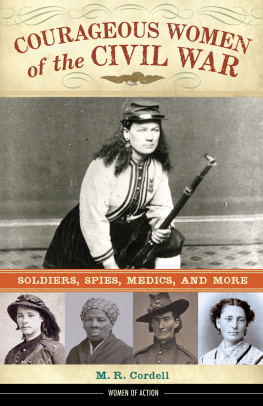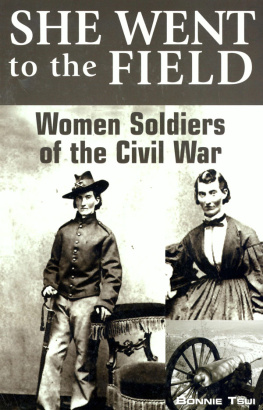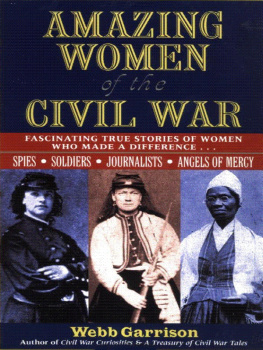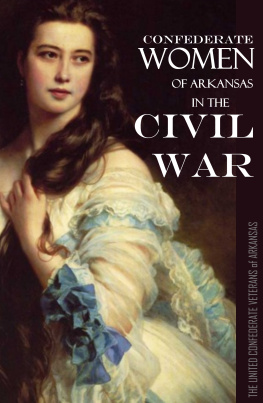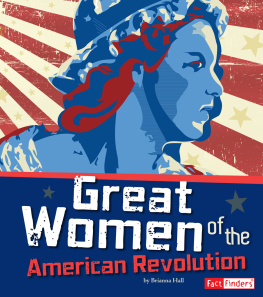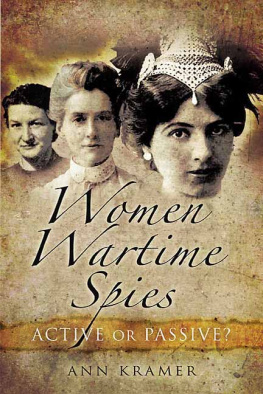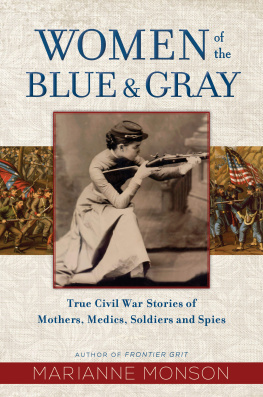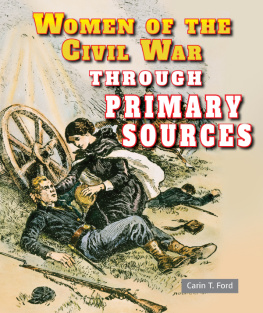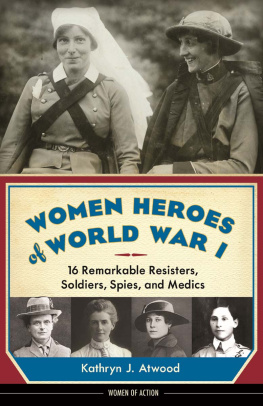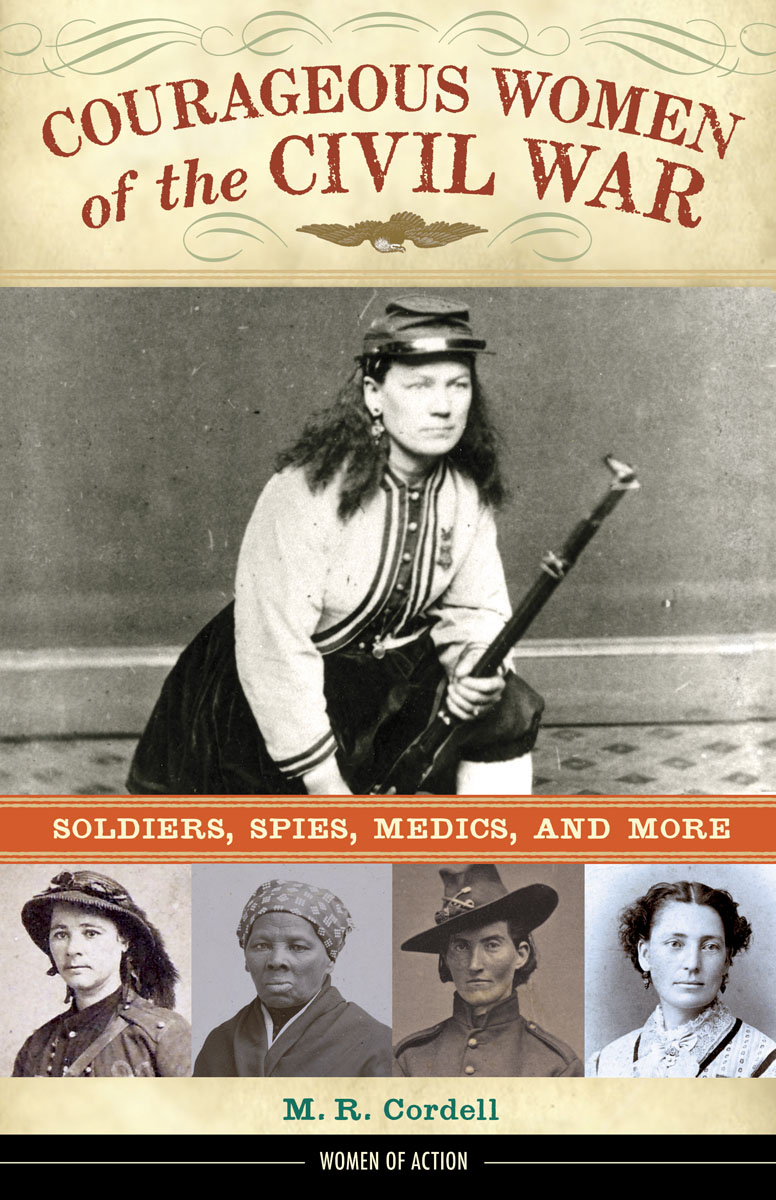

A t the outbreak of the Civil War, nearly everybody was caught up in patriotic fervormen and women, Union and Confederate. Many women supported soldiers through knitting and sewing needed items, growing food, making bandages, gathering medical supplies, and more. But others wished they could be closer to the fight. These women defied societys expectations and bravely chose to take on more dangerous, unconventional roles. Courageous Women of the Civil War reveals the exploits of 16 of these remarkable women who served as medics, spies, battlefield helpers, and even soldiers on the front lines.
Meet fascinating figures such as Maria Lewis, a former slave who fought with the Union cavalry as it swept through Virginia. Disguised as white male soldier, she put the fear of Hell into Confederate enemies. Kady Brownell supported her husbands Rhode Island regiment as a vivandire, training with the soldiers, fighting in battle, and helping the injured. Mary Carroll, a Missouri rebel, forged a copy of a jail cell key to break her brother out before his scheduled execution.
These and other little-known stories are told through gripping narrative, primary source documents, and contextualizing sidebars. Civil War history is woven throughout, offering readers a clear overview of the era and the war. Also including numerous historic photos, source notes, and a bibliography, Courageous Women of the Civil War is an invaluable resource for any students or history buffs bookshelf.
Other Books in the Women of Action Series
Code Name Pauline by Pearl Witherington Cornioley, edited by Kathryn J. Atwood
Double Victory by Cheryl Mullenbach
The Many Faces of Josephine Baker by Peggy Caravantes
Marooned in the Arctic by Peggy Caravantes
Reporting Under Fire by Kerrie L. Hollihan
She Takes a Stand by Michael Elsohn Ross
Women Aviators by Karen Bush Gibson
Women Heroes of the American Revolution by Susan Casey
Women Heroes of World War I by Kathryn J. Atwood
Women Heroes of World War II by Kathryn J. Atwood
Women in Blue by Cheryl Mullenbach
Women in Space by Karen Bush Gibson
Women of Colonial America by Brandon Marie Miller
Women of Steel and Stone by Anna M. Lewis
Women of the Frontier by Brandon Marie Miller
A World of Her Own by Michael Elsohn Ross

Copyright 2016 by M. R. Cordell
All rights reserved
First edition
Published by Chicago Review Press Incorporated
814 North Franklin Street
Chicago, Illinois 60610
ISBN 978-1-61373-200-7
Library of Congress Cataloging-in-Publication Data
Names: Cordell, M. R. (Melinda R.), author.
Title: Courageous women of the Civil War : soldiers, spies, medics, and more
/ M.R. Cordell.
Description: First edition. | Chicago, Illinois : Chicago Review Press, 2016.
| Includes bibliographical references and index.
Identifiers: LCCN 2015045158| ISBN 9781613732007 (cloth) | ISBN 9781613732038
(epub) | ISBN 9781613732021 (kindle)
Subjects: LCSH: United StatesHistoryCivil War, 18611865WomenJuvenile
literature. | United StatesHistoryCivil War,
18611865BiographyJuvenile literature.
Classification: LCC E628 .C67 2016 | DDC 973.7082dc23 LC record available at http://lccn.loc.gov/2015045158
Interior design: Sarah Olson
Map design: Chris Erichsen
Printed in the United States of America
5 4 3 2 1
CONTENTS

Index
To Dad,
Steven A. Smith
19472011
588th Engineer Battalion
Vietnam, 19671968
I miss you every day.

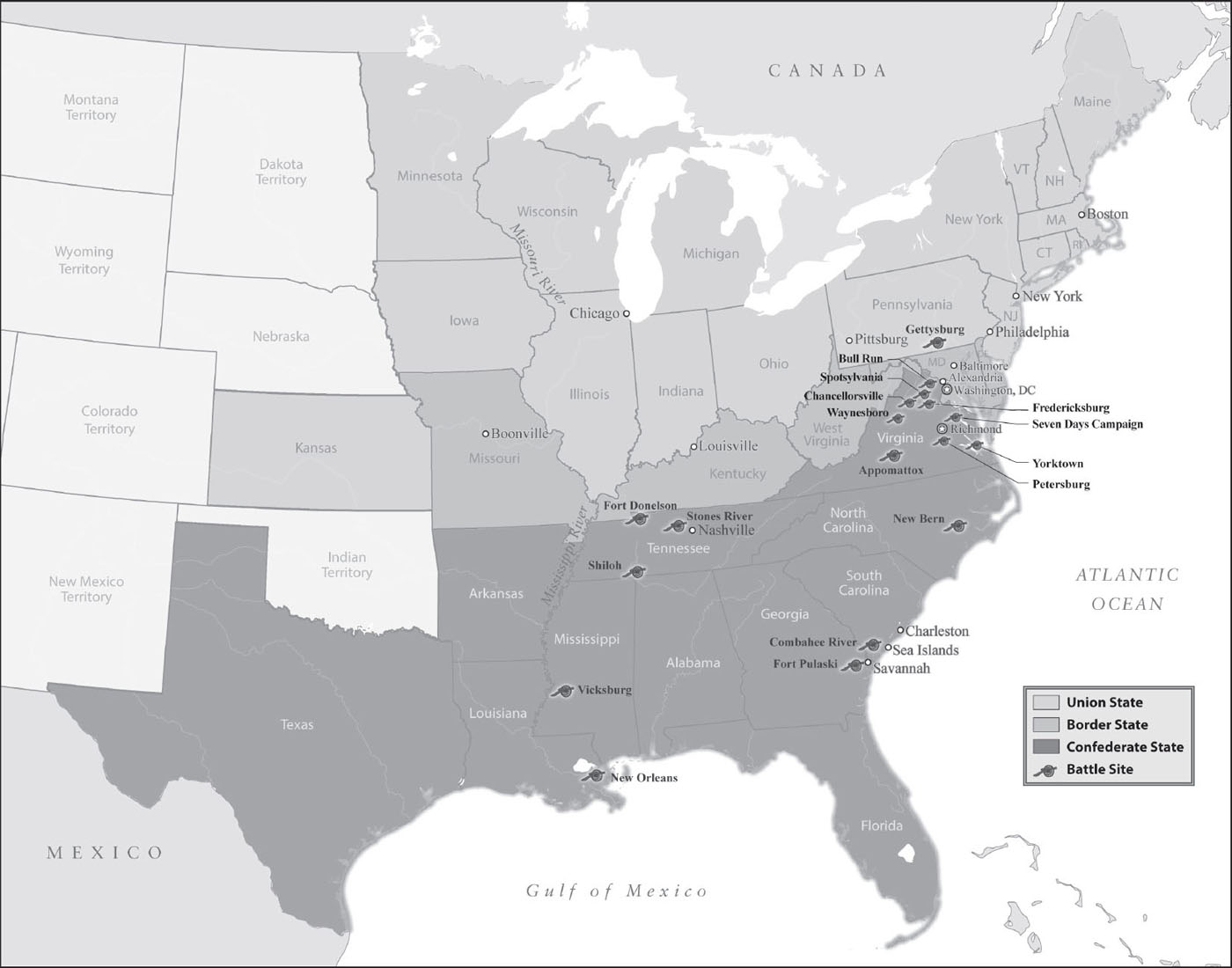
INTRODUCTION

T HE C IVIL W AR (18611865), also known as the War Between the States and the War of the Rebellion, was the bloodiest clash on American soil. Approximately 625,000 soldiers died in the conflictequal to all the American soldiers who died in the American Revolution, the War of 1812, the Mexican-American War, the Spanish-American War, World War I, World War II, and the Korean War, combined. (This number does not include civilian deaths in the Civil War, estimated to have been anywhere from 50,000 to more than 100,000.) Even today, more than 150 years later, the effects of this war, one of the central events in American history, can still be seen and felt in many ways.
While the central issue at stake in the Civil War was the continued existence of the institution of slavery, related and contributing factors included economic and social differences between the North and South, and the battle over states rights.
Enslaved Africans had been forced to work in the New World before the 13 original colonies were created. However, during the Revolutionary War, the British Army offered freedom to all runaway slaves, effectively draining the North of slave labor. As a result, slave labor never made a comeback in the North. However, in the South, the plantation owners, who wanted free manual labor in their cotton fields, considered slavery a necessity.
As more and more slaves escaped to the free North, Southerners lobbied Congress to pass the Fugitive Slave Act of 1850, which required Northern states to capture and return runaway slaves. But any black personincluding free peoplecould be taken south on the affidavit of anyone who claimed to be his or her owner. The law stripped black people of legal rightsdenied habeas corpus, denied bail, denied a jury trial, and denied the right to testify.
Northerners protested having to use their resources and money to comply with a law that they did not want to enforce. Conflicts ensued. On September 11, 1851, a gun battle broke out in Christiana, Pennsylvania, between a large group of fugitive slaves and four Southern men intent on kidnapping them. On May 26, 1854, in Boston, marshals and 22 companies of state troops blocked an outraged mob from storming a courthouse and freeing a captured black man named Anthony Burns.
In addition to retaining slavery in the South, Southern lawmakers wanted to make slavery legal in the western territories, asserting they had the Constitutional right to take slaves into Federal territories and hold them there as property. Northern congressmen disagreed. Illinois congressman and presidential candidate Abraham Lincoln, for example, refuted them, saying in an address in 1860, But no such right is specifically written in the Constitution. That instrument is literally silent about any such right.
Lincoln said that the South felt justified in potentially breaking up the Union because it could not abide the election of a Republican presidentone who would abolish slavery. What did the South really want? According to Lincoln, This, and this only: cease to call slavery
Next page
